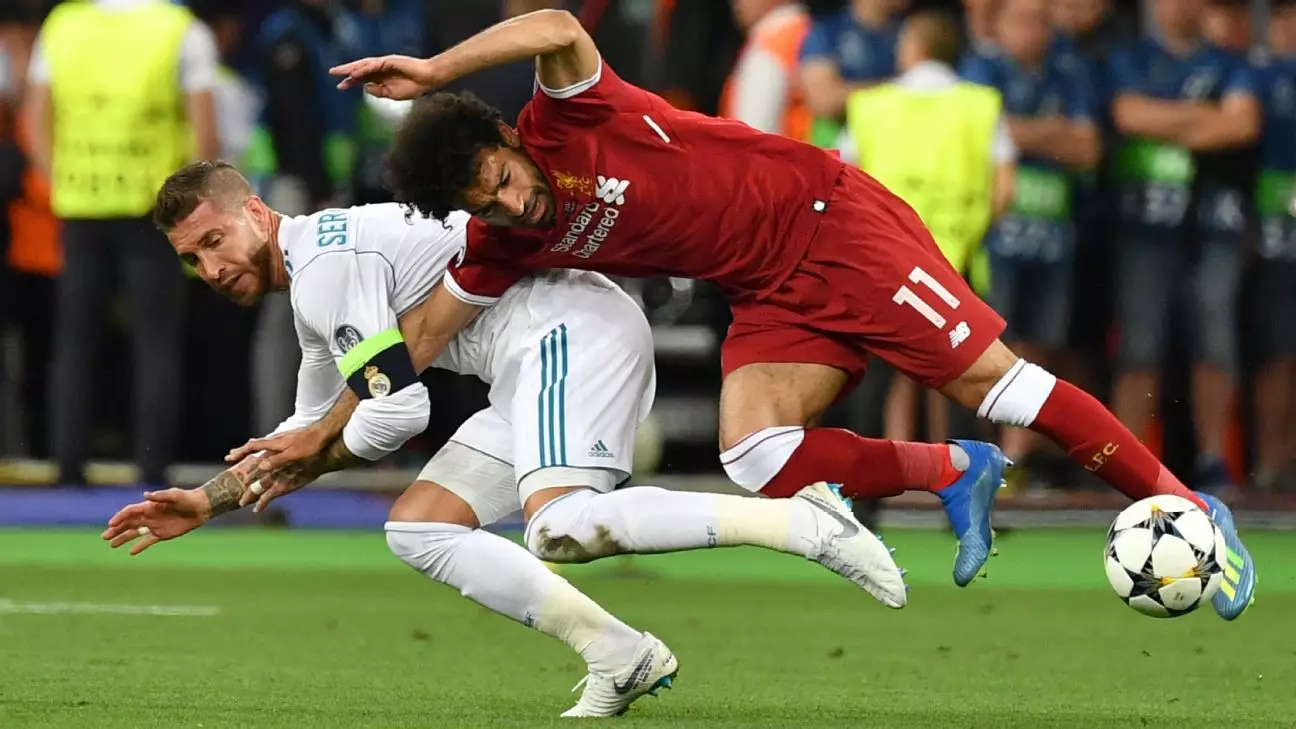In the world of football, rivalries and personalities often shape the narratives that fans engage with. Jürgen Klopp, the former Liverpool manager, recently reignited discussions about the ethics of player behavior when he scrutinized Sergio Ramos, a figure often associated with both brilliance and controversy. During a candid conversation on Toni Kroos’ podcast, Klopp’s comments underscore a deep-seated frustration with what he perceives as an overly aggressive mindset that can sometimes overshadow sportsmanship in the game.
Klopp’s reflection on the infamous incident during the 2018 Champions League final, when Ramos collided with Mohamed Salah, reveals his complex feelings toward aggressive tactics in football. The collision, which led to Salah’s early exit from the match and ultimately contributed to Liverpool’s 3-1 loss, remains a poignant memory for many fans. Klopp did not mince words, questioning whether Ramos could be deemed a ‘good guy’ given the circumstances. This skepticism raises interesting questions about the morality of players who prioritize winning over sportsmanship.
Aggression on the field is a polarizing topic. On one hand, many fans appreciate a player’s fierce competitiveness, seeing it as part of what makes football thrilling. On the other hand, there’s a growing call for accountability, particularly when aggressive actions lead to injury or compromise the integrity of the game. Klopp’s critique of Ramos can be seen as part of a broader discourse surrounding the responsibilities athletes hold not just to their teams, but to their opponents as well.
Kroos, in defense of his former teammate, portrays Ramos as a ‘very good teammate,’ which sheds light on the loyalty and camaraderie aspects within a sporting context. This contrasts sharply with Klopp’s perspective, emphasizing the fact that even among elite athletes, the definitions of ‘good’ and ‘bad’ can be subjective and contextually dependent. The divergence in their views highlights the complexities of player relations and the various factors that contribute to how players are perceived by their peers and the public.
Klopp’s comments also signal a potential shift in how coaches approach player behavior and aggression in football. As the sport evolves, so too do the expectations on athletes to balance competitiveness with a sense of fair play. The former manager’s insistence on maintaining a moral compass speaks to a growing realization within the sport that aggressive tactics may not always be justified, especially in high-stakes matches like the Champions League.
Lastly, it is essential to recognize the implications of these discussions for future generations of players. As foundational figures in football, coaches like Klopp wield considerable influence and their critiques can shape norms for aspiring athletes. The sportsmanship that Klopp advocates for may pave the way for a more respectful and ethical form of play, one that values integrity as much as victory.
The unyielding spirit of competition must be balanced with vigilance over sportsmanship and ethical conduct. Klopp’s insights serve as an important reminder that the true essence of football lies not only in triumph but also in respect for the game and its players.

